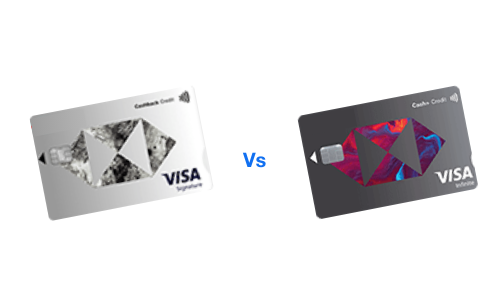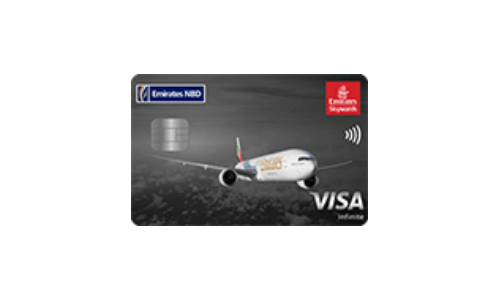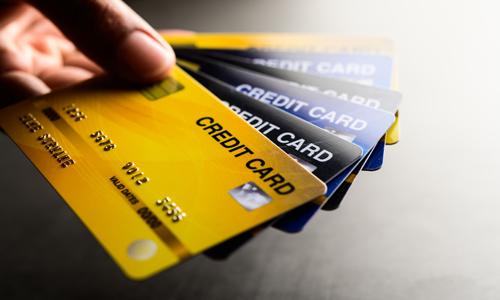Visa vs MasterCard Credit Card

In today's fast-paced financial landscape, the choice of a credit card can significantly impact your financial well-being.
Two of the most prominent names in the credit card industry, MasterCard and Visa, continually vie for the attention of consumers worldwide. This competition has led to a diverse array of credit card options, each boasting its own set of benefits and perks.
Choosing between MasterCard and Visa is akin to selecting the perfect tool for your financial needs - it's a decision that should not be taken lightly. In this comprehensive article, we will dive into the realm of MasterCard and Visa credit cards, offering an in-depth comparison to help you make an informed decision as per your unique financial objectives and lifestyle.
Whether you're a frequent traveller, a cashback enthusiast, or simply looking for the best card for your daily expenses, this guide will provide the insights you need to make an informed choice.
About Visa Credit Cards
Visa cards are payment cards that rely on the Visa network for transactions. These cards have a 16-digit number, a microchip, a magnetic stripe, and other useful features.
It’s important to note that these cards are provided by banks and not directly by Visa.
Listed below are the types of Visa credit cards -
Types of Visa Credit Cards
- Visa Classic credit card - Among the most utilised credit cards worldwide, the Visa Classic Credit Card offers round-the-clock assistance in emergency situations. It's accepted for shopping, travel, and dining transactions of all kinds.
- Visa Gold Credit Card - The Visa Gold Credit Card provides access to a higher credit limit, emergency card replacement, and cash disbursement while travelling. Cardholders also enjoy year-round access to travel, legal, and medical assistance, along with special offers for worldwide travel, dining, and retail purchases.
- Visa Platinum Credit Card - The premium Visa Platinum Credit Card comes with a wide array of benefits and rewards. This card is widely accepted by merchants across the globe and provides access to exclusive offers from leading hotels, electronics retailers, medical stores, and more.
- Visa Signature Credit Card - With a Visa Signature Credit Card, you can gain access to a multitude of benefits and services from the bank. This globally-accepted credit card provides 24/7 concierge services as well as an extensive range of benefits, including hotel perks, travel advantages, and shopping privileges.
- Visa Infinite Credit Card - As an elite offering from Visa, the Visa Infinite Credit Card comes with a comprehensive set of benefits, including shopping perks, dining privileges, and hotel and travel advantages. The Infinite card is accepted globally and features continuous concierge service for emergencies.
About MasterCard Credit Cards
The MasterCard card offers a global advantage in the form of acceptance at countless retail outlets and online stores worldwide. Whether you're travelling internationally or locally making purchases, your card usage remains hassle-free.
Additionally, these cards enable cash withdrawals from ATMs, although it's crucial to note that withdrawal fees may be substantial, especially when used abroad. Hence, exercising caution when using your credit card for this purpose is advisable.
With that clear, let’s have a look at the types of MasterCard Credit Cards -
Types of MasterCard Credit Cards
- Standard Mastercard - The Standard version of Mastercard is ideal for your everyday shopping needs — whether in physical stores, online, or at hotels.
- Platinum Mastercard - Platinum MasterCard cards are recognised globally and elevate your lifestyle with a range of premium services and options.
- World Mastercard - World MasterCard cards also provide global recognition and come with a plethora of enticing travel-related and other category perks.
How are MasterCard and Visa Different from Banks?
MasterCard and Visa are corporations that offer digital payment solutions by partnering with banks and other financial establishments. These financial institutions are responsible for issuing the cards, as neither Visa nor MasterCard issue their own.
Both Visa and MasterCard operate on a commission-based model, charging fees for the provision of payment services. Banks handle the card's production and distribution costs when selling them to customers.
Comparing Visa Vs MasterCard Credit Cards
While the distinction between the two may not be extensive, specific areas of differentiation are there, primarily in terms of their offerings. Examples of these divergent offering categories include hotels and travel ticket reservations.
Furthermore, it's worth noting that some Visa credit cards offer superior 'Loss of Use' coverage for car rentals, whereas MasterCard cards excel in providing enhanced cost protection services. In practical terms, if you make a purchase with a MasterCard and the retailer reduces the item's price within 60 days of your purchase, MasterCard can refund the price difference.
Other points of difference are discussed in detail below -
| Basis | Visa Card | MasterCard |
|---|---|---|
| Service Fee | The fee that you pay is determined by the card's transaction volume | Your fee is calculated as a percentage of the total global dollar volume |
| Transaction | The number of cards in circulation and the total purchase volume are higher | The number of cards in circulation and the purchase volume are lower |
| Contactless Payment Mode | Uses Visa payWave | Uses PayPass |
Similarities between Visa and MasterCard
To be eligible for a credit card from both Visa and MasterCard, a well-maintained credit Score is a prerequisite. The final decision regarding card approval rests with the sponsoring bank, not the credit card companies themselves. Similarly, when it comes to fees, it's the banks that establish them rather than Visa or MasterCard.
When selecting a card, it's crucial not to solely rely on the card's name - thorough research is essential to ensure you find the right fit. As far as business credit cards are concerned, both Visa and MasterCard offer special corporate deals that include automatic statement refunds for qualifying merchants, featuring discounts of 15% or more.
Visa vs MasterCard: What to Opt for?
Most vendors gladly accept both payment methods, so you won't encounter any issues regardless of your choice. You might want to investigate the fees associated with currency conversion, but these disparities are unlikely to be a deal-breaker. If you value a generous rewards program, opt for the one that provides deals on products or services aligned with your interests.
Nevertheless, when it comes to convenience, there's not much to distinguish between them. In most cases, it won't make a significant difference whether your card is Visa or MasterCard.
In practical terms, there are hardly any noteworthy distinctions between MasterCard and Visa credit cards overall, so we wouldn't recommend selecting a card based solely on its network.
Instead, you should compare all credit cards based on the benefits they offer — whether you're in search of a travel credit card, a cashback credit card, or a balance transfer credit card that allows you to consolidate and pay off debt at 0% APR for a limited period.
Take a moment to assess your credit score to gauge your standing, and then evaluate all the available credit cards you could potentially qualify for. Conducting side-by-side comparisons will provide you with the clearest understanding of which cards would be most advantageous for your situation.
Frequently Asked Questions
Ans: Both Visa and MasterCard are recognised for their security. The two payment gateways are known to have zero fraud liability across all types of credit cards. This means that in case any money is lost, the cardholder who falls victim to fraud will not be held liable.
Ans: Selecting the most suitable credit card payment network depends on your individual credit card usage, and there's no universally applicable answer. Given that everyone has distinct spending habits and usage patterns, it's advisable to assess your own usage and make your network selection accordingly.
Ans: Yes, both Visa and MasterCard credit cards are globally accepted. As a result, these cards are pretty convenient to use and easily accessible when it comes to making payments while travelling.
More From Credit Cards
- Recent Articles
- Popular Articles



















